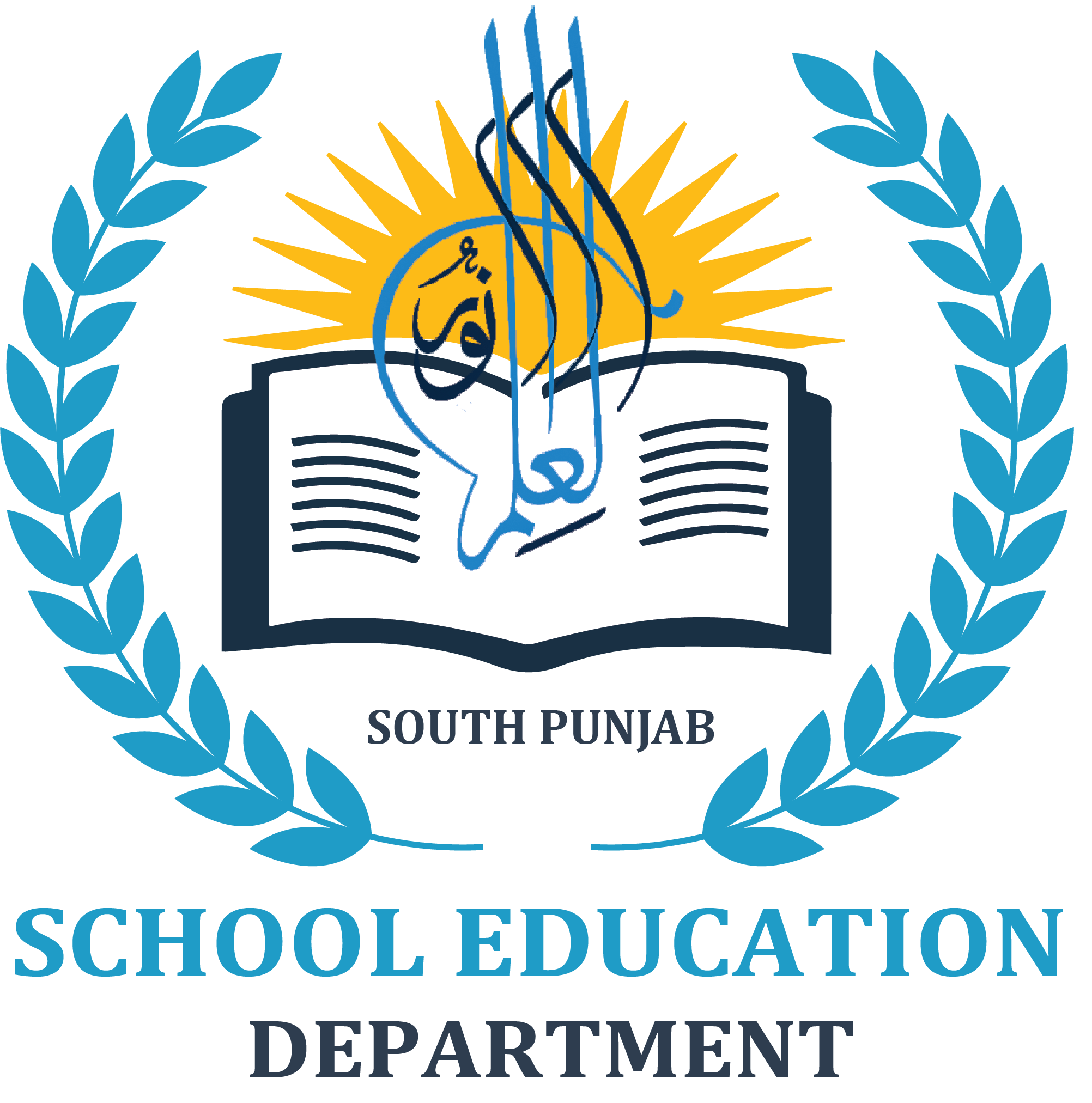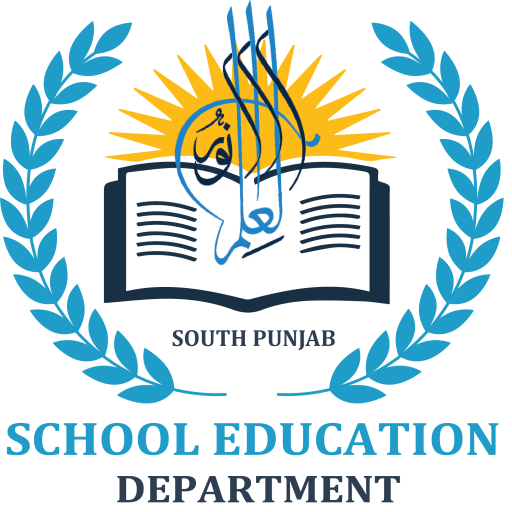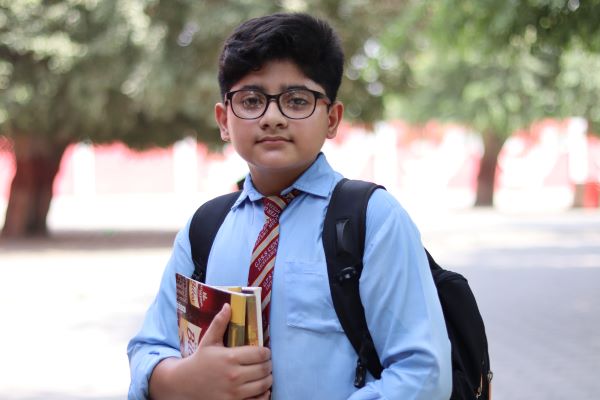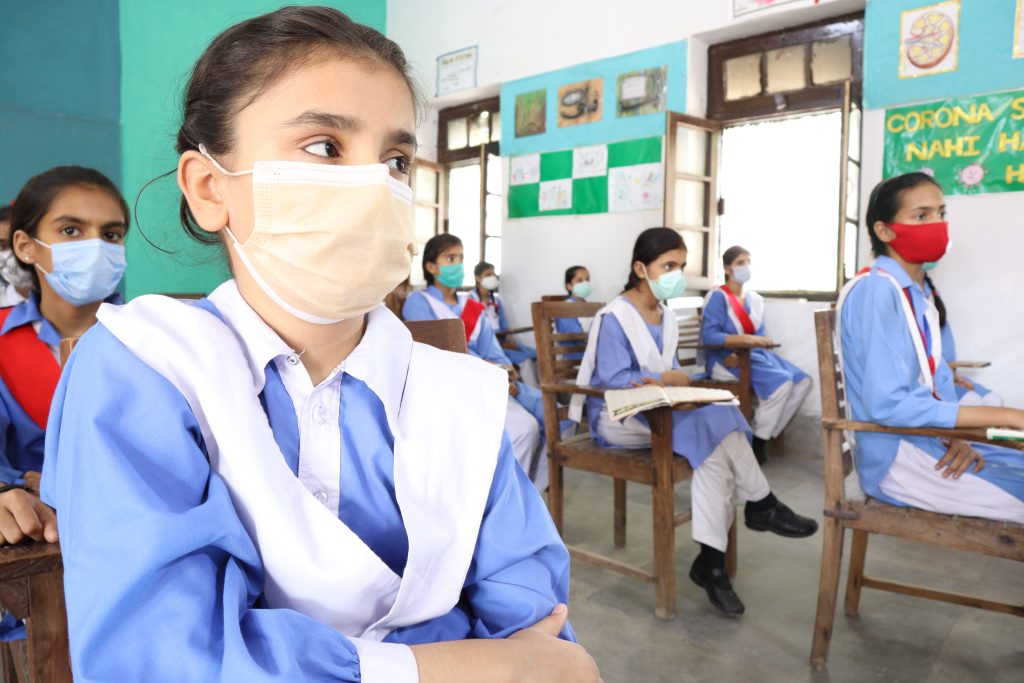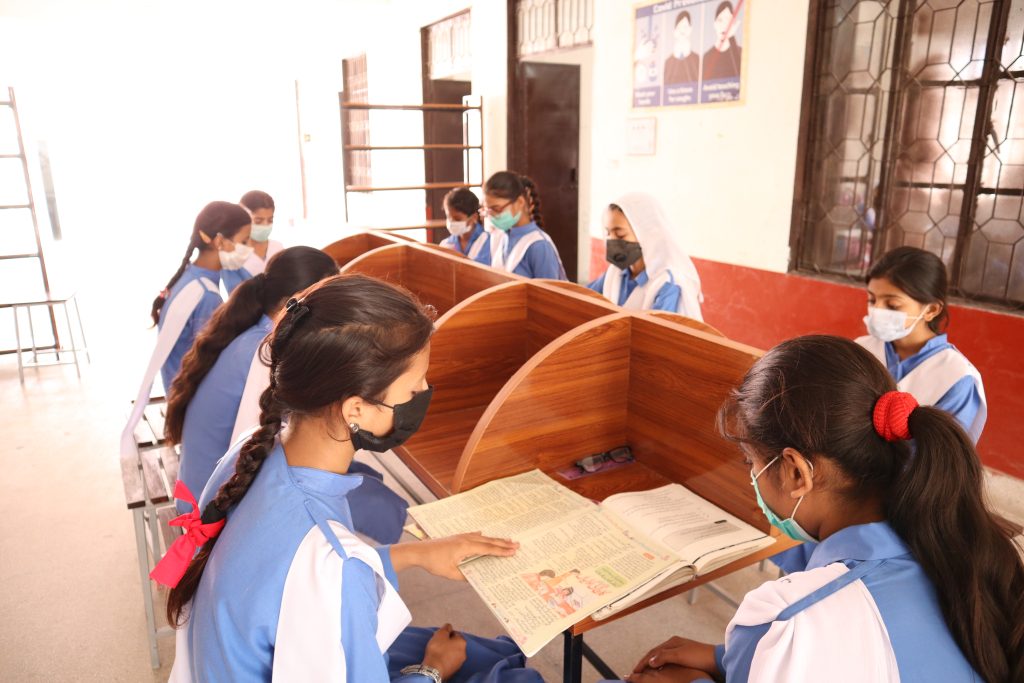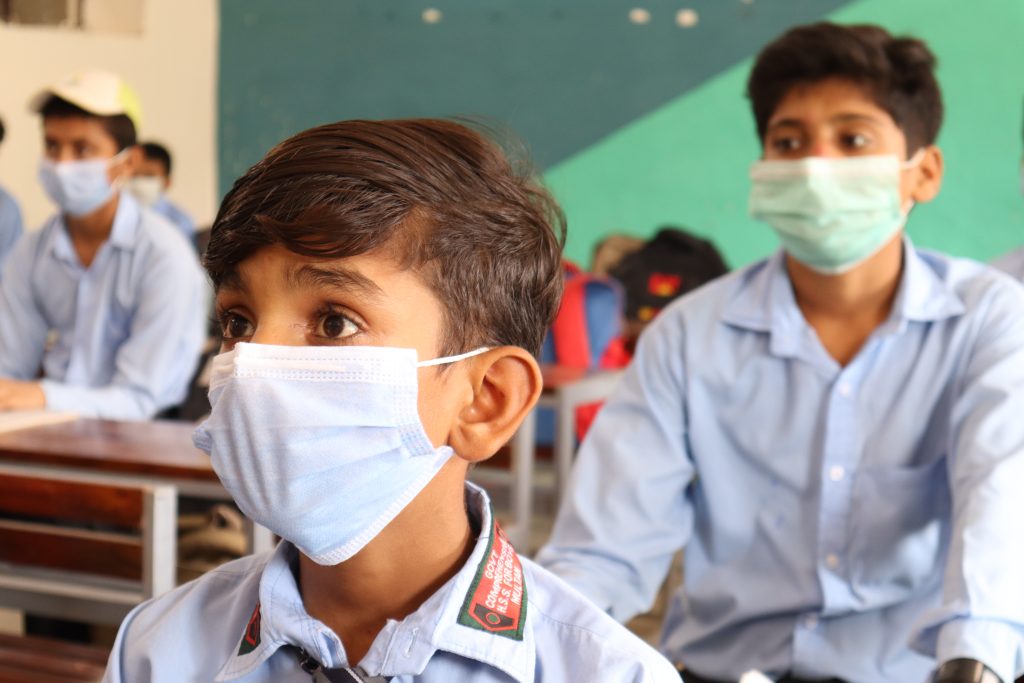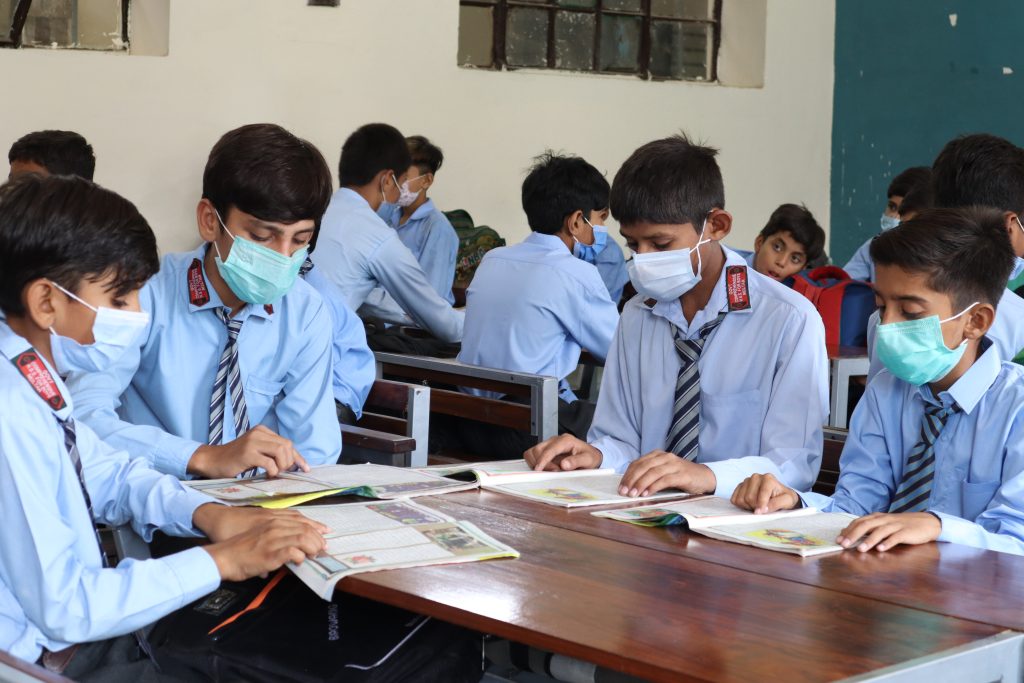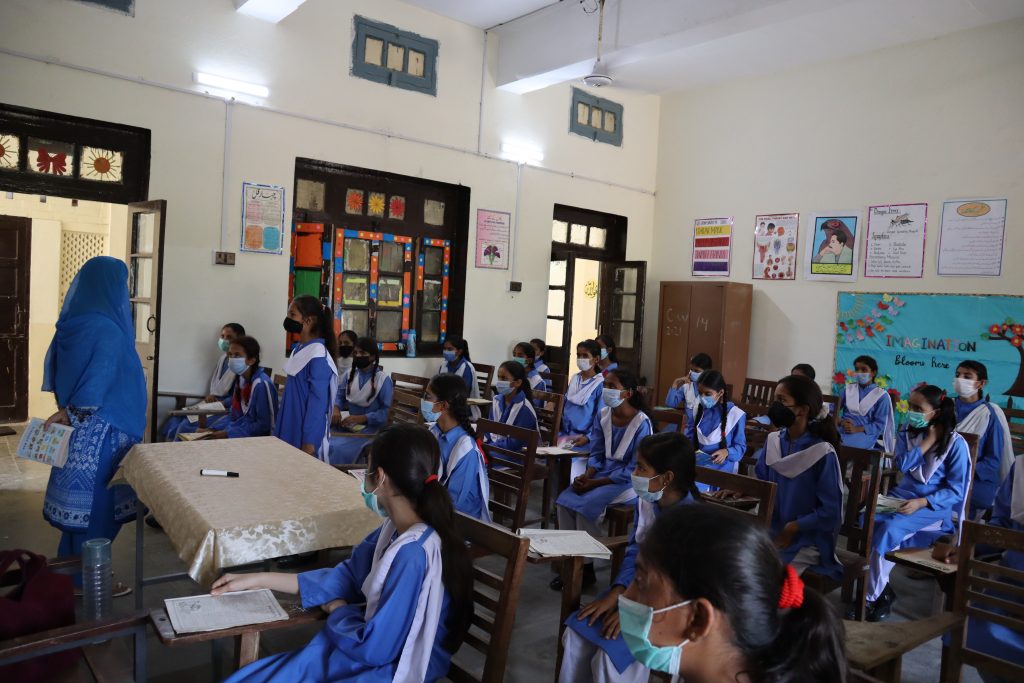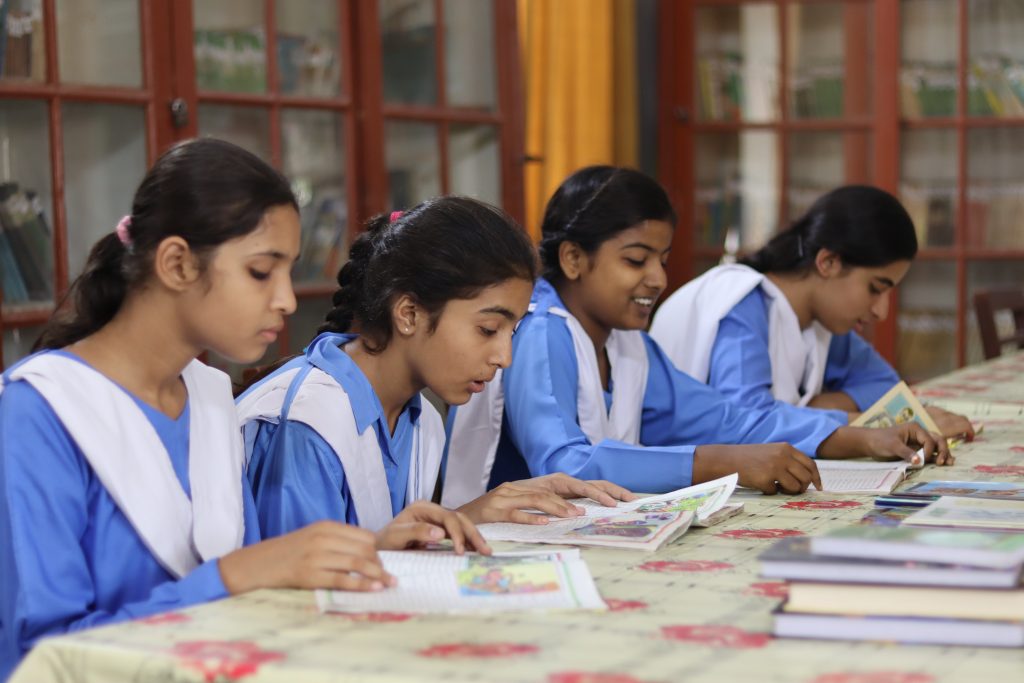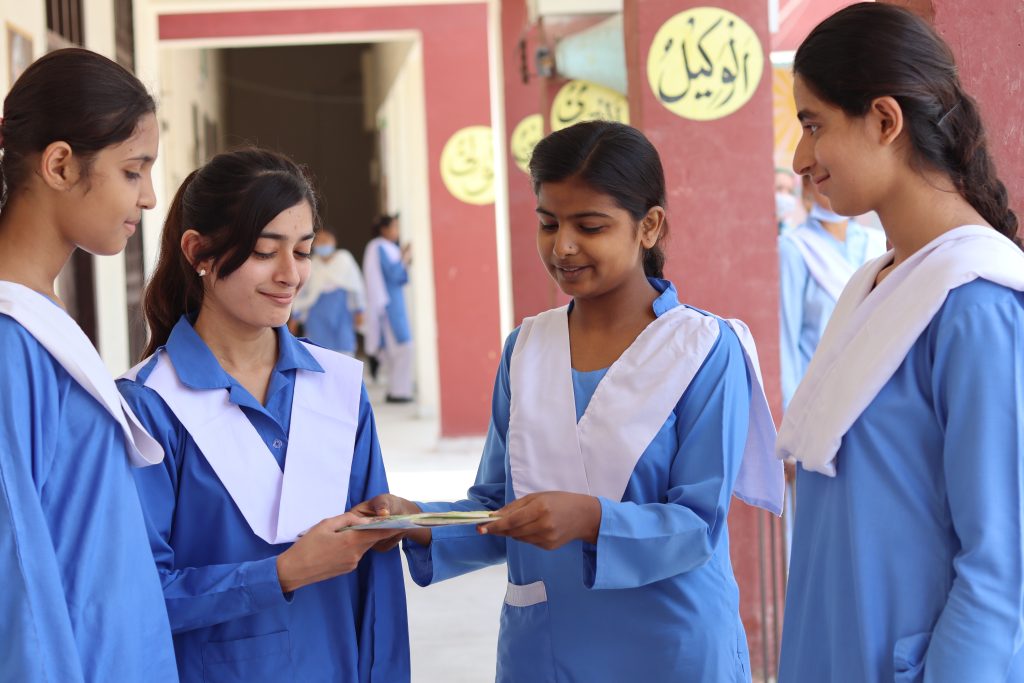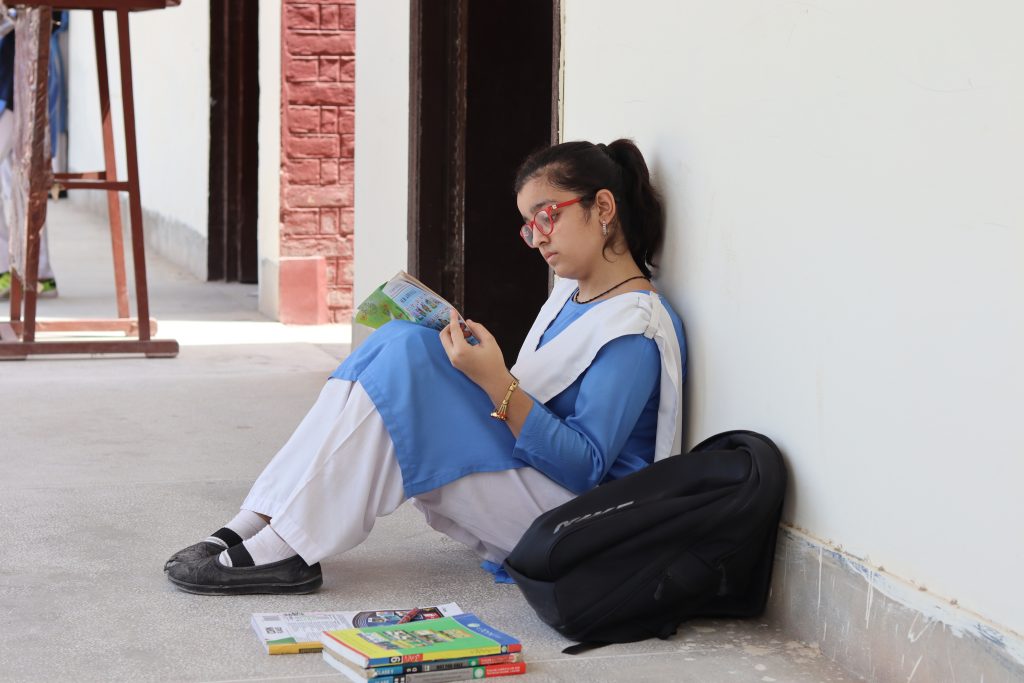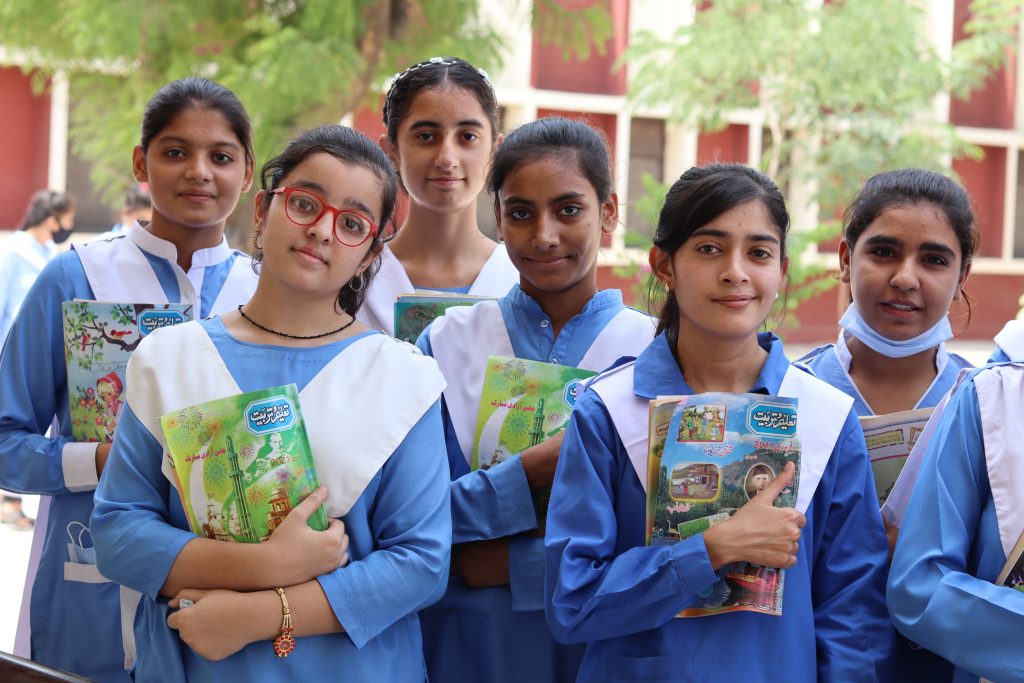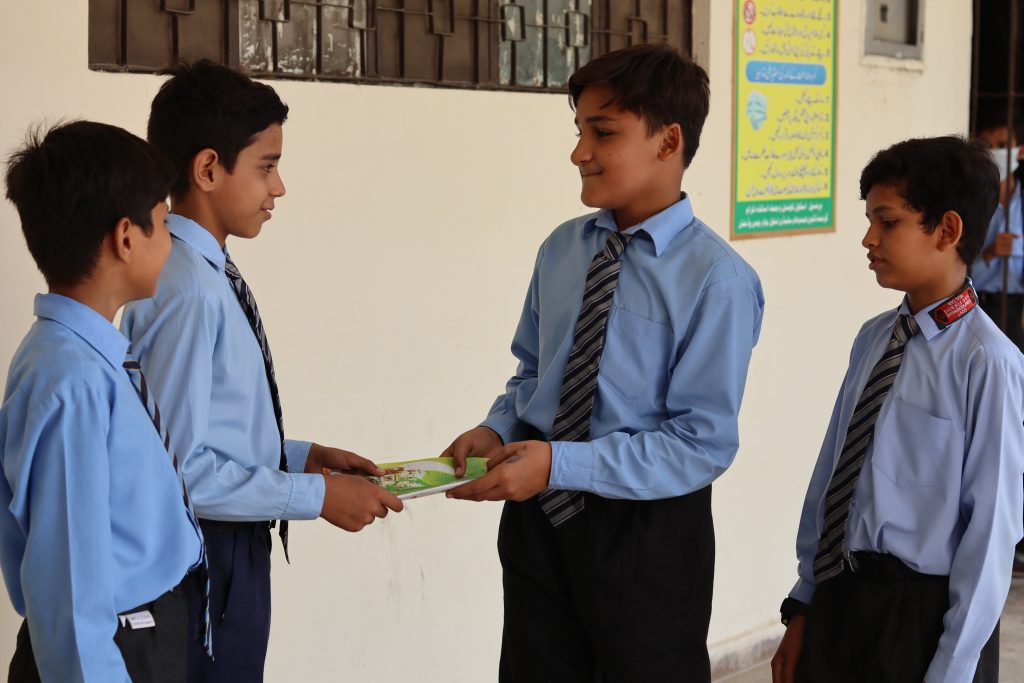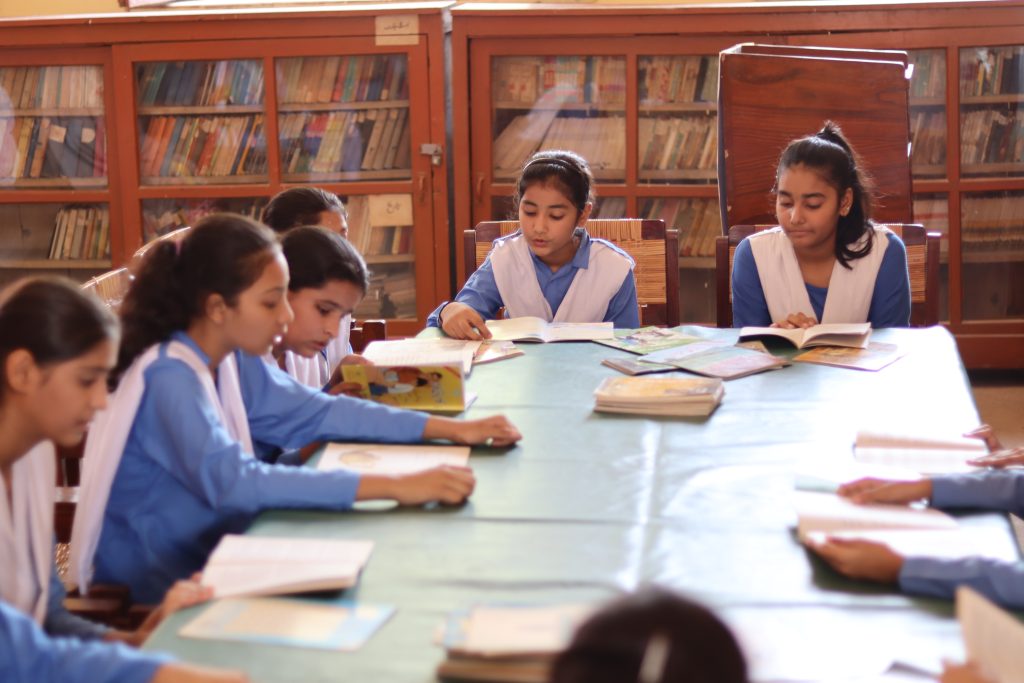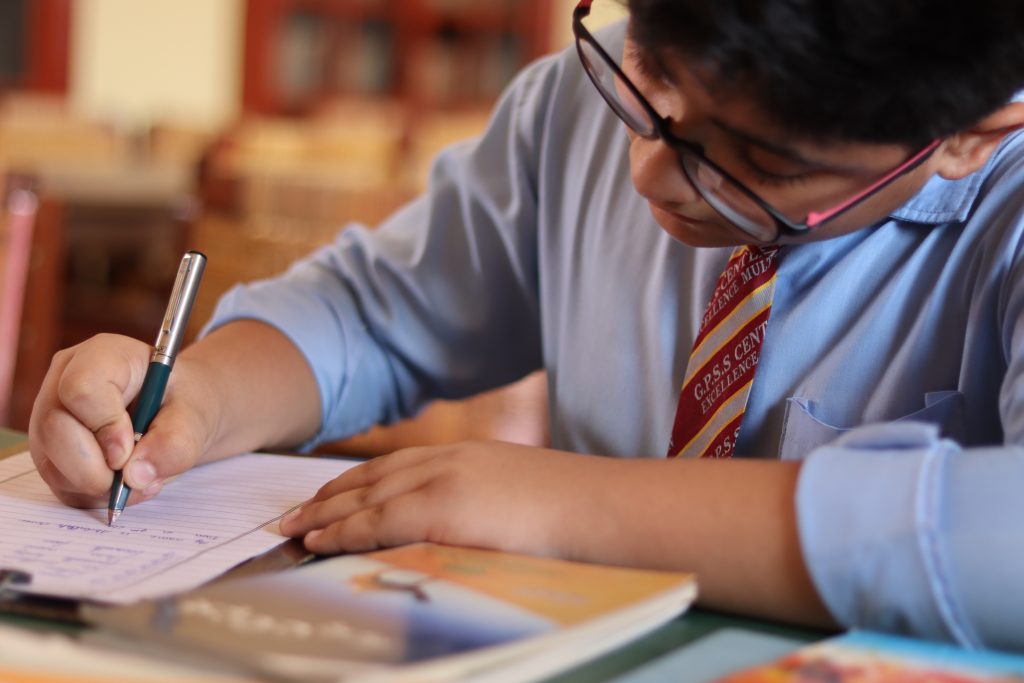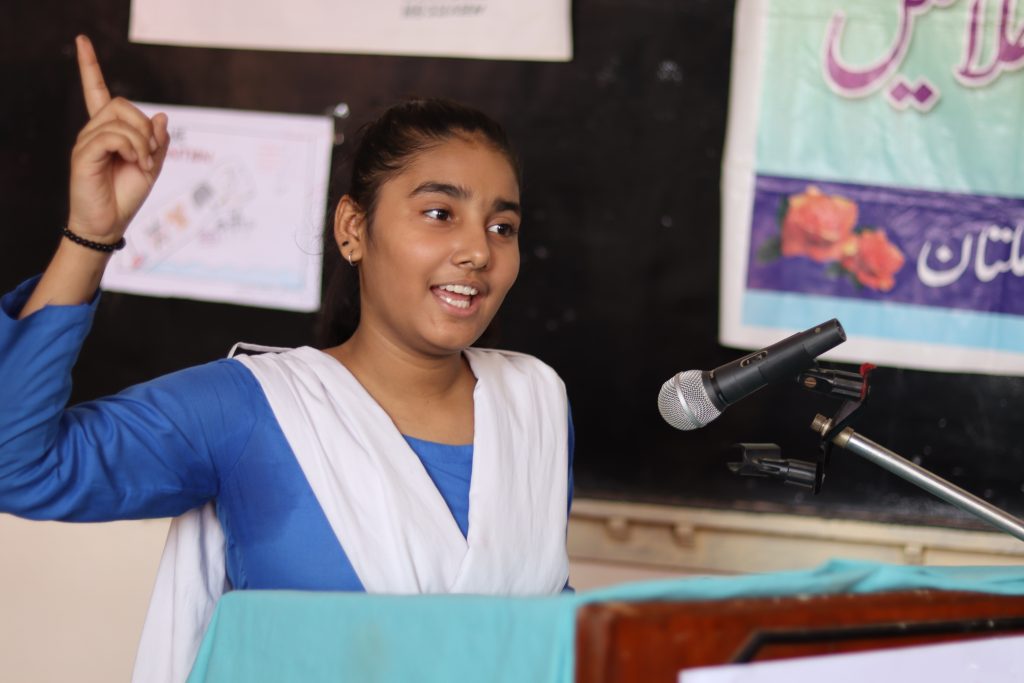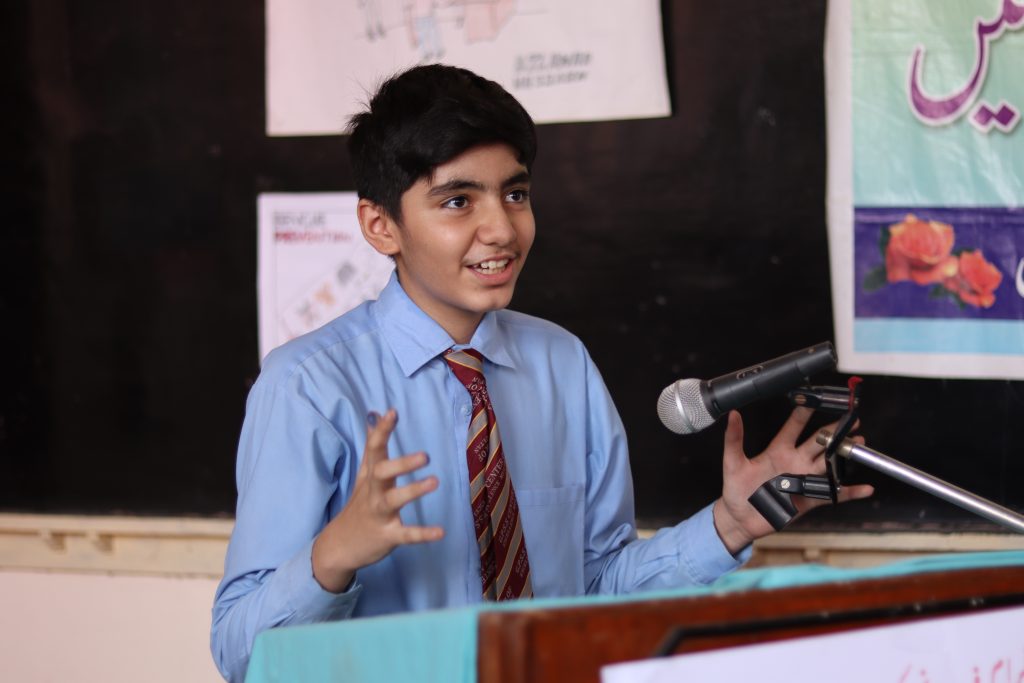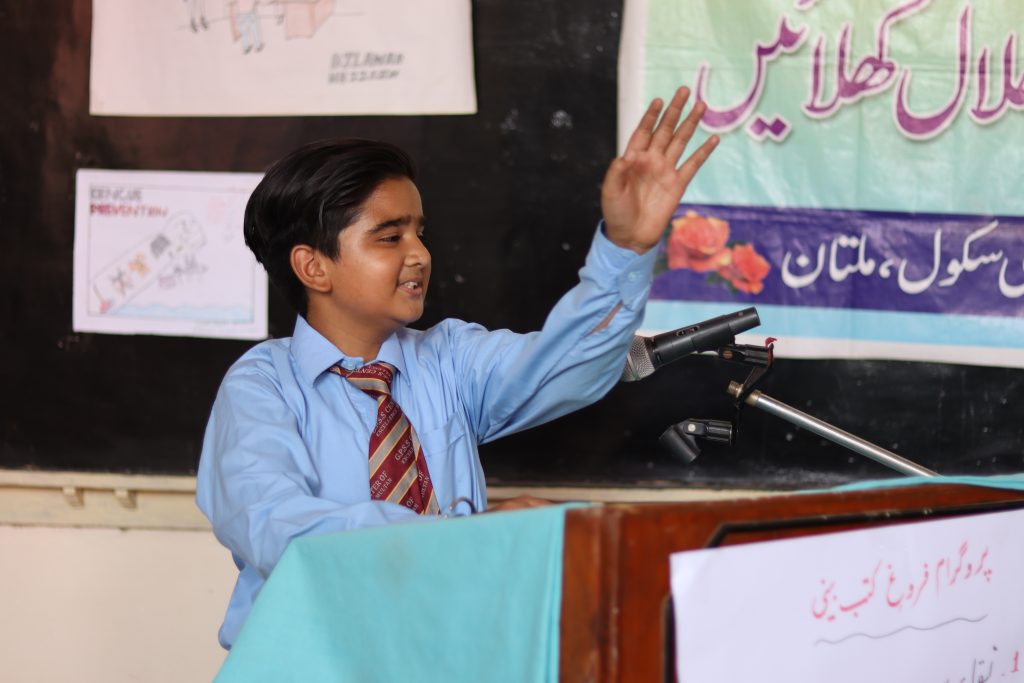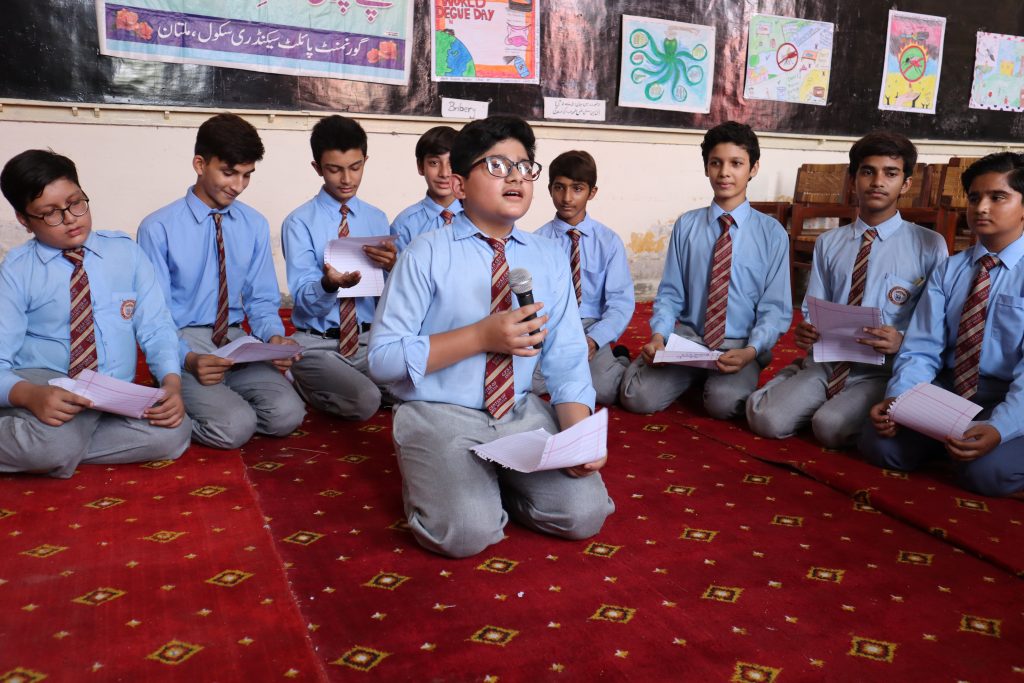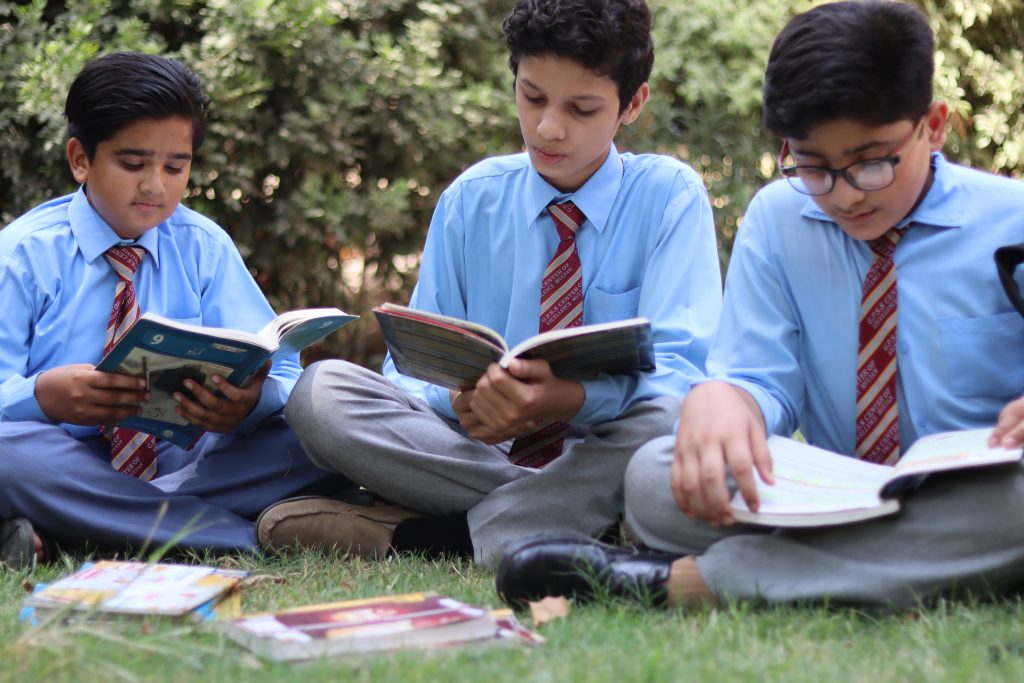HIGHLIGHTS OF FAROGH PROJECT OF EDUCATION DEPARTMENT SOUTH PUNJAB
There are 3 components of the project as follows:
- Revival of literary and allied activities in schools
- Promotion of book reading habits among school children
- Launch of first ever Online magazine for children in the country
COMPONENT 1: REVIVAL OF LITERARY AND ALLIED ACTIVITIES IN SCHOOLS
Background:
There was a time, co-curricular activities were integral part of teaching at all public schools – Bazm-e-Adab, essay writing, poetry recitation, speeches and declamation contests to name a few of them. Not so any more. As a result, the character-building elements of our academic system has become seriously compromised. Also, our children have become lacking in a number of life skills.
Methodology:
- Bazm-e-Adab is being constituted in every school, and tradition of its regular meetings is being revived.
- A special week would be held twice a year entailing Bazm-e-Adab, essay writing, poetry recitation, speeches and declamation contests.
- Children Literature Festivals are being planned in every district of South Punjab in association with Idara Taleem-o-Agahi.
- In order to benefit the children from the rich poetry resources of Urdu literature, students from class 6-9 would be taught a minimum of 100 well known and quality couplets.
COMPONENT 2: PROMOTION OF BOOK READING HABITS AMONG SCHOOL CHILDREN
Background:
Book reading culture is on its way out from our society, in general, and children, in particular. Children today are more interested in making use of, and enjoy, electronic gadgets such as computers, mobiles, video games and the like. As a result, they are not getting benefit from the useful knowledge available in books. On the other hand, disconnect from book reading might also disconnect them from their history. Furthermore, children today are deprived of learning those social, moral and religious values which one used to learn from books. True that they are exposed to wealth of knowledge available on the internet but knowledge so acquired can at best be declared vast but not deep. Finally, as they say, the printed words leaves a longer lasting impact than a word communicated electronically. If this challenge of dying book reading habits is not taken head-on, no wonder the habit would be lost once and for all from amongst our younger generation.
The Education Department intends to intervene at the level of class 6 in public schools. The students at this stage are mature enough to do the reading on their own, on one hand and on the other, are still in the age where their habits are being formed/taking roots. Through the planned intervention, the students would be compulsorily exposed to book reading for a period of one year at the end of which, it is expected, that a good percentage is likely to have developed the habit of book reading and continue it for the rest of their lives.
Methodology:
- The project will be led by Urdu teachers in public schools.
- Quality and traditional magazines such as Taleem-o-Tarbiat, Naunehal etc may be used for the purpose. There are multifarious reasons to give preference to a magazine over a book some of which are as follows:
- A magazine is more illustrative, colourful and attractive.
- The diversity of contents caters for all moods and preferences. One can read a story, a poem, a joke or any other such item depending upon one’s mood and available time.
- The length of individual contents is such that one can easily read them in one sitting.
- Character building is one of the objectives/integral components of these reputed magazines since generations.
- Corresponding with 4 weeks of a month, each class 6 of a public school would be divided into Reading Circles comprising 4 children each, and each Reading Circle would be provided one copy of the selected magazine in the beginning of every month. Each of these 4 children in every group would keep the possession of the magazine for one week. Starting from the first day of a month, it would be a 28 days’ cycle.
- The order of handing over the magazine would be changed every month. For example, a student in a Reading Circle who gets magazine last of all in one month may get the magazine in the first week in the next month, and so and so forth.
- Once the 28 days’ cycle is complete, entire class would have gotten the opportunity to read the magazine. The rest of 2-3 days of the month would be utilized by the relevant Urdu teacher who would arrange discussions among the children in the Urdu period on the contents of the magazine and the learnings the students have had, such as what did they like the most, what they did not like, any new word or term they learnt, so and so forth. These discussions would be used as a subtle tool to appreciate those students who would have read the magazine attentively and would thus be able to take active part in discussions, and make others, who would not have done the task of reading at all or have done the same halfheartedly, realise that they shall also do justice to the task in future. However, while doing so, it shall be doubly ensured that the students take the exercise of book reading not as a burden but as a joyful activity.
- It may also be noted that not only the students who keeps the custody of magazine for a week would read the magazine but also his/her brothers and sisters at home would also get an opportunity to do so. In other words, we would be targeting not only our students but their siblings too through this campaign of promotion of book reading.
- Once the reading cycle is complete, the magazine would be placed in library so that the students of other classes could access them too.
COMPONENT 3: LAUNCH OF FIRST EVER ONLINE MAGAZINE FOR CHILDREN IN THE COUNTRY
Background:
It has been observed at all hands that due to a variety of reasons, the writing and drafting skills of the younger generation are either far from satisfactory or non-existent at all. It was therefore the need of the time to start inculcating these skills to the children in our schools in an organised manner. At the same time, the development in technology was also to be taken in account. Accordingly, the Education Department, South Punjab decided to prepare and launch ‘Roshni’ – first ever online magazine for kids in Pakistan. The test run of the magazine is being done at roshni.net.pk, these days; however, it needs to be formally launched yet. The characteristic features/highlights of the magazine are as follows.
- First ever online magazine of kids in the country.
- Available in the form of a traditional website as well as in electronic flip book format.
- Mobile friendly version for those who would access it from their cellular phones. Accessible for reading and contributions not only to the children of South Punjab but also all of Pakistan, and even world. Colourful and attractive; and comprising stories, autobiographies, poetry, art work, riddles, jokes, essays, interviews, historical facts, anecdotes and more.
- Providing counseling and practical solutions to the problems faced by children.
Detailed SOPs have been issued to the Chief Executive Officers for onwards sharing with the heads of schools in order to ensure that the children get maximum benefit out of the facility. The SOPs have painstakingly been prepared and issued in Urdu for better comprehension. The main points are as follows:
A Magazine Committee would be constituted in every school comprising Urdu teachers as well as Computer teachers. Whereas the Urdu teachers would supervise the writing activities, the Computer teachers would look after the technical aspects such as computer typing, formatting, emailing etc. The responsibilities of the Magazine Committees would be as follows:
- Introducing the online magazine to children and urging/motivating them to read and contribute to it.
- Helping the children to pick the topics access resources and collect relevant material.
- Teaching the children tips for good writing.
- Editing/correction of the written stuff.
- Selecting the quality writings and forwarding to the editorial board of the magazine in the prescribed manner.
